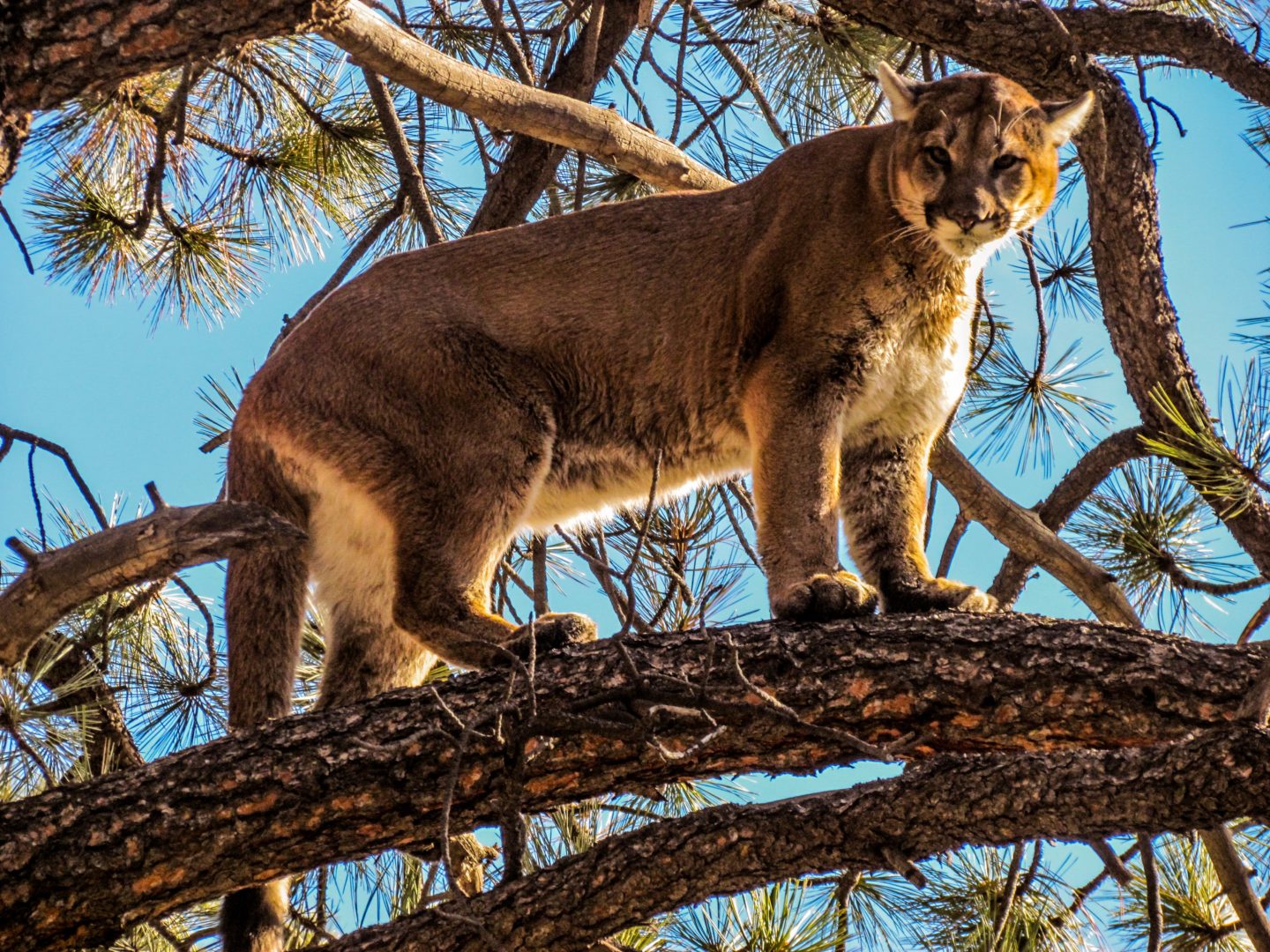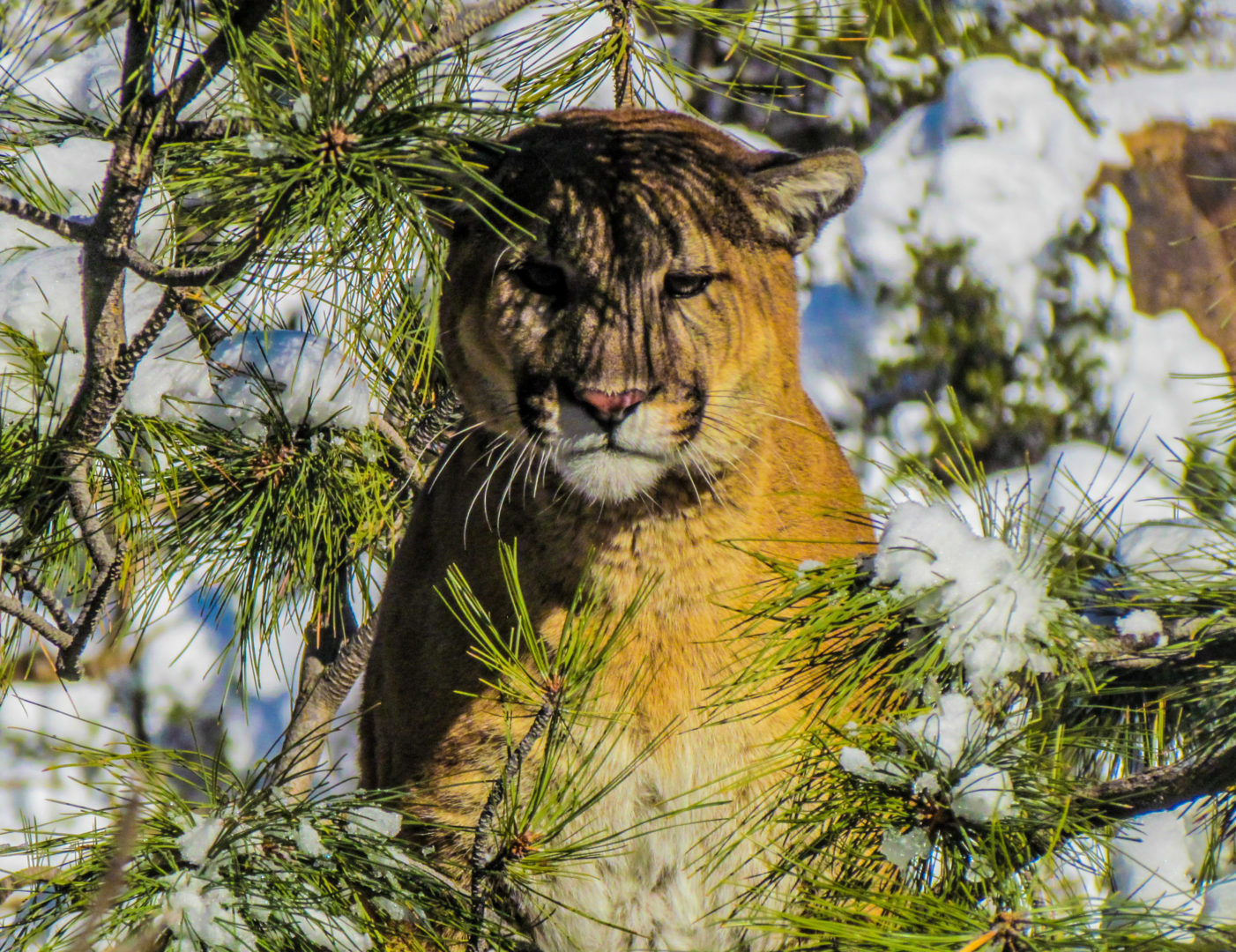Our Work With Cougars

BODHI’s Wildlife Capture Specialists have over 20 years of experience working with mountain lions, having both treed and cage trapped several hundred cats in that time. Our well trained staff’s main priority is keeping the study animal and capture team safe, while also providing research projects with the highest levels of capture success. Please watch this video and see how we do it.
BODHI Wildlife Conservation Specialists capturing a mountain lion to collar for conservation research. Capturing mountain lions is inherently dangerous and requires experts that are trained to safely handle these capture operations.
Why Cougars?
Mountain lions live a mostly solitary existence, and are commonly found in low densities inhabiting the remote and rugged terrain of the West. They were once present throughout the lower 48 states, but self-sustaining populations are now restricted to 12 western states and a small remnant population in Florida. The majority of these states list mountain lions as a big game species, utilizing sport hunting as a management tool to achieve each state’s population management objectives. Due to the difficulty and expense of generating accurate population estimates on these cryptic large cats, wildlife agencies struggle to monitor the effects their prescribed harvest rates have on mountain lion population dynamics.
Cougar Research
Studies over the past few decades and advances in tracking technology have enabled wildlife managers to gain a better understanding of mountain lion ecology. But in order to really protect this species we need more. We live in a world heavily impacted by people, and like other big game species, mountain lions require close population monitoring so we can better understand the impact of development, hunting, and other human activities. Fine scale data allows wildlife managers to dynamically manage hunting quotas and keep them in line with how the populations fluctuate over time.
Promising new research projects are studying new techniques for generating consistent and cost effective population estimates. Unfortunately, funding for scientific research is shrinking and many of these projects wrestle to find enough funding to hire professional capture specialists necessary to ensure that mountain lions are captured safely and humanely. Without critical data from these research projects, mountain lion populations are at risk of over harvest and population decline.
How You Can Help
This is where your donations can make the difference in successfully conserving mountain lions. We leverage your donation by combining it with research funding to get a bigger return on every dollar donated. This important funding provides these research projects with access to professional carnivore capture specialists that are highly effective at safely and consistently capturing these large cats. Without your help, these important research projects would be under staffed, suffer from low capture success, and wouldn’t be able to collect sufficient data. By helping scientists estimate mountain lion populations, you can help make sure wildlife biologists are using the best available information to sustainably manage mountain lions for generations to come.
Your Support Makes Our Conservation Efforts Possible

Why Do We Ask For Donations?
Wildlife biologists struggle to secure enough funding to consistently capture and research carnivore populations. Your donations help support this important research by providing them with our capture specialists. Without your help the level of research needed to conserve these carnivores may never happen!
BWCS is registered as a 501(c)(3) nonprofit organization. Contributions to BWCS are tax-deductible to the extent permitted by law.
Donate Today!


















